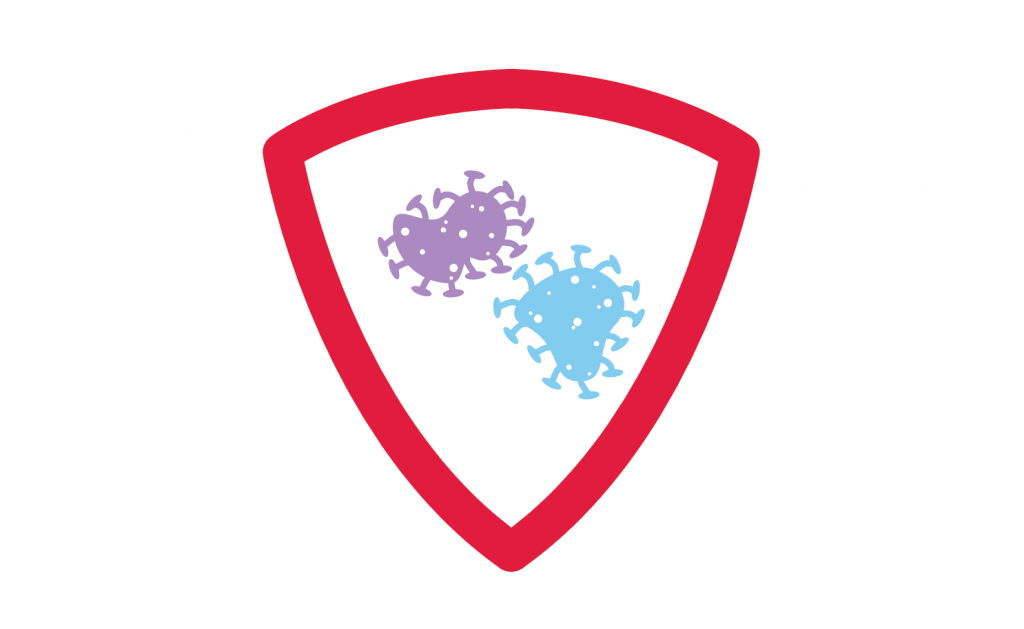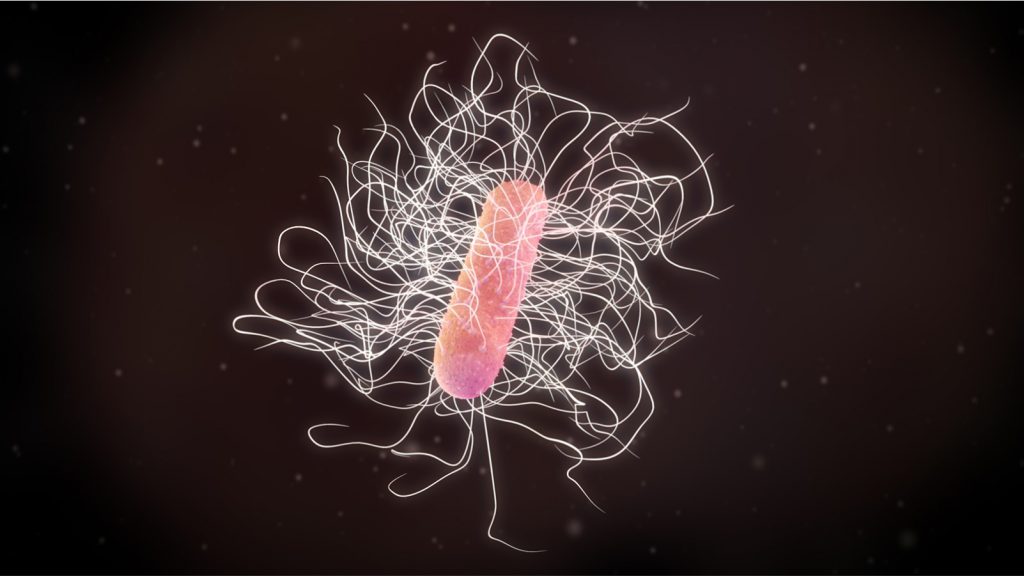Connie: Dear friends, it’s great to have you here with us again this Saturday evening. As we get to know more about probiotics, I’m sure that more questions are popping up and don’t worry, we are here to answer these questions for you. I’m saying ‘we’ because I’m here with our old friend Dr. Hofstadter, who will be introducing the mechanisms behind probiotics’ beneficial effects on humans and animals today. Thank you for being here today, Dr. Hofstadter.
Dr. Hofstadter: Thanks for your invitation, Connie. I’m very excited to be here.
Connie: At the end of the 19th century, microbiologists found that the microorganisms in healthy people’s GI tract were different from those in patients of various diseases. These microorganisms, now known as probiotics, meaning ‘for life’, can provide health-promoting effects on both humans and animals. What more can you tell us about probiotics?
Dr. Hofstadter: As you just said, Microorganisms, or probiotics, include bacteria, yeasts, and molds, but when we say probiotics, we usually refer to bacteria. Probiotics have different roles. For example, they produce antibacterial compounds such as lactic acid, contribute to the preservation of milk, and produce flavor compounds such as acetaldehyde in yogurt and cheese. More importantly, many probiotics have been used to eliminate and treat various diseases. Sometimes you may not even be aware that you are taking probiotics, like when you are eating fermented yogurt, which contains lactic acid bacteria that can reduce serum cholesterol. This opens up a new research field.
Connie: That’s true. In addition to the basic nutritional value, probiotics are widely reported to provide consumers with a variety of health benefits. It is reported that probiotic drugs can control serum cholesterol levels, thus showing special preventive or therapeutic effects. Today, I want to learn more from you about the various mechanisms behind probiotics’ benefits to human and animal health.
Dr. Hofstadter: Great. It’s my favorite topic. So we know that probiotics, mainly lactic acid bacteria and their food variants, provide a variety of important nutritional and therapeutic health benefits, such as anti-cancer and anti-mutation activities. Now let’s dig into the mechanisms. The first one I want to share is about the competition with pathogens. It is known that probiotics maintain or restore the balance of host-microbial association, thereby reducing the invasion and colonization of pathogens.
Connie: But how do probiotics maintain the balance of this microbial environment?
Dr. Hofstadter: Probiotics maintain the presence of endogenous microorganisms in all functional locations of our intestines. In this case, the invasion and establishment of pathogens in that ecological community are reduced. In fact, probiotics can also exist in useful niche environments. They can directly change the local environment by secreting short-chain fatty acids, bacteriocin, lactic acid, and reactive oxygen species that inhibit the growth of pathogens.
Connie: I see. The activity of probiotics can affect the production of various metabolites in the intestine. What are the effects of these metabolites on the intestine?
Dr. Hofstadter: Several species of intestinal microbiota promote the production of single-chain fatty acids and various vitamins such as niacin, thiamine biotin, vitamin B12, folic acid, pyridoxine, and vitamin K. In addition, probiotics also produce butyric acid. It is the main energy source of intestinal cells and is related to the wear of the GI wall.
Connie: It has long been known that probiotics have different positive effects on the immune system, and we have also talked about it in previous episodes. So, what mechanism is immune regulation based on?
Dr. Hofstadter: These probiotic strains have the characteristics of inducing interleukin-12 and have the immune function of activating natural killer cells. This is why probiotics are considered to have immunomodulatory effects. Other species have immunomodulatory effects due to their ability to regulate the T cell pathway and stimulate interleukin-10. In addition, these effects can be species-specific. Some species have pro-inflammatory effects on the immune system, while others have anti-inflammatory effects.
Connie: It has been reported that some probiotics have the ability to reduce the risk of intake of heavy metals and dangerous chemicals. Through what mechanism do probiotics play a role in the removal of pollutants or heavy metals?
Dr. Hofstadter: Speaking of the role of removing metals, it has to be the cell wall of probiotics. Bacterial cell walls bind to metals through three main mechanisms. The first one is by ion exchange reaction with phosphoteic acid and peptidoglycan. And then, the binding is through the nucleation reaction leading to precipitation. And last but not least, by forming complexes with oxygen and nitrogen ligands. For example, Micrococcus pentosus destroys fumonisin, a cluster of mycotoxins produced by fungi.
Connie: Interesting. The study of intestinal microbiota shows that intestinal microbial metabolites can reduce the metabolic capacity of the liver to paracetamol. Can you tell us more about the result of this study?
Dr. Hofstadter: The intestinal microbial metabolite p-cresol inhibits hepatic enzyme hepatic sulfur transferase through competitive inhibition. This is why they can achieve this effect. This study suggests that the similar role of microorganisms in the intestine in drug and xenogeneic metabolism may have a significant impact on future treatment options. In addition, some studies have shown that pollutants from dietary and environmental chemicals interfere with intestinal bacterial function. So it can induce a pro-inflammatory response and affect host health. Supplementing probiotics can further help the intestinal flora effectively metabolize various drugs and even exogenous substances.
Connie: In other words, probiotics play an important role in the metabolism of exogenous substances and drugs. As far as I know, bile acid metabolism is also an important process in the intestine. What is the role of probiotics in bile acid metabolism?
Dr. Hofstadter: That’s a good question. Primary bile acids are de bound and dehydrated by certain species of the intestinal microflora, such as enterobacteroides, and convert into secondary bile acids to further inhibit the spore germination of Clostridium difficile, thus inhibiting the growth of Clostridium difficile propagules. Clostridium difficile is a Gram-positive anaerobic bacillus that is widely distributed in human and animal intestines, and the environment. In the past decade, the frequency and severity of Clostridium difficile infection have increased all over the world and become one of the most common hospital-acquired infections. To some extent, probiotics can treat Clostridium difficile infection by affecting bile acid metabolism.
Connie: So up til now, we have been discussing the mechanisms of probiotics against pathogens, improving immune function, removing heavy metals, metabolic drugs, and exogenous substances, and affecting bile acid metabolism. Now let’s switch gears. What do you think is the significance of studying these mechanisms of probiotics for human health?
Dr. Hofstadter: At present, there are many probiotic products on the market that claim to have therapeutic value. But still, more research on probiotics and their therapeutic effects is needed. A full understanding of the relevant mechanisms will provide a scientific basis for the use of probiotics in the prevention and treatment of a variety of diseases.
Connie: That makes a lot of sense. Like you said, probiotics provide a variety of health benefits through a variety of mechanisms, such as improving intestinal health, enhancing immune response, reducing serum cholesterol levels and blood pressure. The overall health of consumers who are taking probiotics has been improved. Intestinal epithelial cells compete with the binding sites of pathogens, so as to prevent infection, produce metabolites such as bacteriocin that inhibit the growth of pathogens, enhance the epithelial barrier and improve the adhesion with the intestinal mucosa. The inhibition of pathogen adhesion and the regulation of the immune system are key mechanisms of probiotics.
Dr. Hofstadter: Exactly. Probiotics are attracting more attention as an alternative to anti-inflammatory drugs or antibiotics because of their many health benefits. This has led to the growth of the probiotic market. At present, there are many probiotic products on the market that claim to have therapeutic value. Despite that, more research on probiotics and their therapeutic effects is needed, which then can provide a scientific basis for the use of probiotics in the prevention and treatment of a variety of diseases.
Connie: When you say preventing and treating a variety of diseases, what diseases do you mean?
Dr. Hofstadter: In general, they can be used to treat different types of diarrheas, irritable bowel syndrome, urogenital infection, and improve lactose metabolism. But moreover, these drugs have the potential to treat many more diseases, such as gastroenteritis, cancer, lactose indigestion, allergy, cholesteremia, Helicobacter pylori infection, and inflammatory bowel diseases.
Connie: I truly look forward to a new era of medicine that involves more probiotics as drugs. Ok, that’s it for our episode today. Thanks, Dr. Hofstadter, for joining us and sharing with us your insights in this new field. For the next few programs, we will discuss the various roles of probiotics in maintaining and improving human health. Thank you, everyone, for listening. See you then!
Dr. Hofstadter: Thank you, everyone. I hope we will see you next time.
